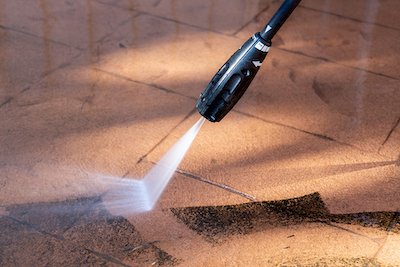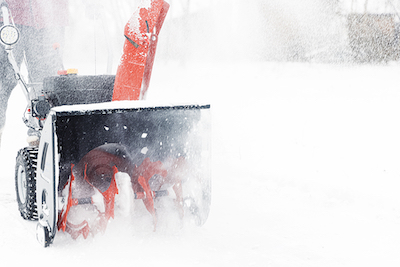Pressure washers have become an essential tool for homeowners and professionals alike, offering an efficient and powerful way to clean various surfaces, from driveways and sidewalks to decks and siding. As you consider purchasing a pressure washer, you’ll likely come across two primary types: electric and gas-powered. To help you make the best decision for your needs, this article will compare and contrast electric and gas-powered pressure washers in terms of power, cost, noise, environmental impact, maintenance, and ease of use.
Power
One of the most significant differences between electric and gas-powered pressure washers is the amount of power they deliver. Measured in pounds per square inch (PSI) and gallons per minute (GPM), these metrics determine the cleaning force of a pressure washer.
- Electric Pressure Washers: Generally, electric pressure washers deliver between 1,300 to 2,000 PSI and 1.2 to 1.6 GPM. This level of power is suitable for light to medium-duty tasks, such as cleaning cars, outdoor furniture, patios, and smaller decks. Electric pressure washers are not typically designed for heavy-duty tasks like stripping paint or cleaning large areas of concrete.
- Gas-Powered Pressure Washers: These models tend to offer higher PSI and GPM ratings, ranging from 2,000 to 4,000 PSI and 2.0 to 4.0 GPM. As a result, gas-powered pressure washers are more suitable for heavy-duty tasks, such as cleaning large driveways, decks, and siding, as well as commercial applications.
Cost
When it comes to cost, there are two factors to consider: the initial purchase price and the ongoing costs of operation and maintenance.
- Electric Pressure Washers: In general, electric pressure washers are less expensive upfront than their gas-powered counterparts, with prices ranging from $100 to $300. Additionally, electric models have lower ongoing costs since they don’t require fuel or oil changes. Electricity costs for operating an electric pressure washer are typically minimal.
- Gas-Powered Pressure Washers: These models are more expensive initially, with prices ranging from $300 to $1,000 or more. Moreover, the ongoing costs for gas, oil, and maintenance can add up over time.
Noise
Noise levels can be an essential factor for some users, especially in residential areas or situations where noise restrictions apply.
- Electric Pressure Washers: These models are generally quieter than gas-powered washers, producing between 60 to 75 decibels (dB) of noise. This level is similar to the noise produced by a vacuum cleaner, making electric pressure washers more suitable for use in noise-sensitive areas.
- Gas-Powered Pressure Washers: Gas-powered models produce more noise, ranging from 80 to 100 dB, which is comparable to a lawn mower or leaf blower. This increased noise level can be an issue in residential neighborhoods or locations with strict noise ordinances.
Environmental Impact
The environmental impact of pressure washers is another factor worth considering, particularly for eco-conscious consumers.
- Electric Pressure Washers: Electric models are generally more environmentally friendly, as they don’t emit exhaust fumes and require no gasoline or oil. However, it’s essential to consider the source of electricity since coal or natural gas-powered plants may still contribute to greenhouse gas emissions.
- Gas-Powered Pressure Washers: These models emit exhaust fumes and consume fossil fuels, which contribute to greenhouse gas emissions and air pollution. Additionally, the risk of fuel spills can pose environmental concerns.
Maintenance
Regular maintenance is crucial to ensure the longevity and optimal performance of your pressure washer.
- Electric Pressure Washers:
Electric pressure washers generally require less maintenance than their gas-powered counterparts. They do not need oil changes, spark plug replacements, or air filter cleanings, making them more user-friendly. However, it’s still essential to periodically check for any worn-out parts, clean the nozzle, and ensure that the water inlet filter is free of debris.
- Gas-Powered Pressure Washers: These models require more frequent maintenance, such as oil changes, spark plug replacements, air filter cleanings, and fuel stabilizer usage during storage. Additionally, gas-powered pressure washers may need occasional carburetor adjustments and fuel system cleanings to ensure optimal performance.
Ease of Use
The ease of use for a pressure washer can significantly impact your overall experience and efficiency while tackling cleaning tasks.
- Electric Pressure Washers: Electric models are generally lighter and more compact, making them easier to maneuver and transport. They also start with the simple press of a button, eliminating the need for pull-starting. Electric pressure washers typically have a lower power output, which may be more suitable for inexperienced users or those who don’t require the additional cleaning force provided by gas-powered models.
- Gas-Powered Pressure Washers: These models tend to be larger and heavier, making them less convenient to move and store. They also require pull-starting, which can be challenging for some users. Gas-powered pressure washers have a higher power output, which can be beneficial for certain tasks but may also require more experience and caution to use safely.
To Sum It Up
When deciding between an electric and gas-powered pressure washer, it’s essential to consider the power requirements of your tasks, your budget, noise preferences, environmental impact, maintenance needs, and ease of use. Electric pressure washers are best suited for light to medium-duty tasks and those who prioritize quiet operation, lower initial and ongoing costs, and reduced maintenance requirements. In contrast, gas-powered pressure washers are ideal for heavy-duty tasks, commercial applications, and users who need the additional power these models provide.
By evaluating your specific needs and preferences, you can make an informed decision and choose the pressure washer that will serve you best. Regardless of your choice, investing in a pressure washer can save time and effort while keeping your property looking its best.












